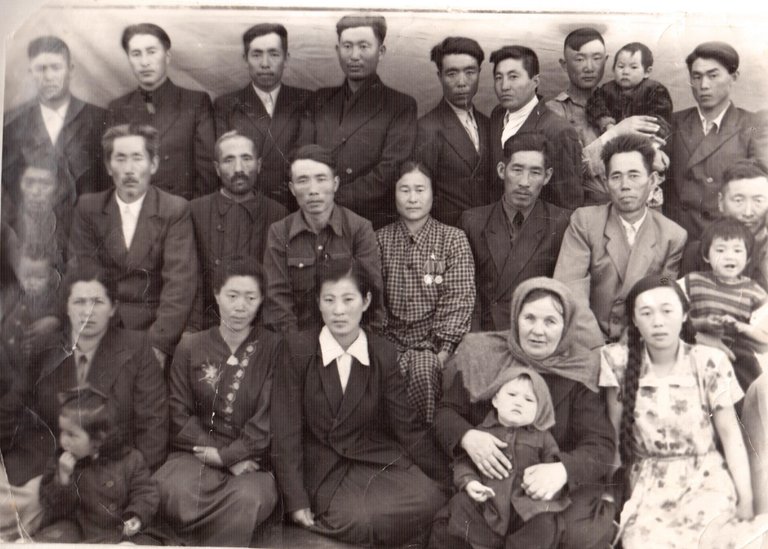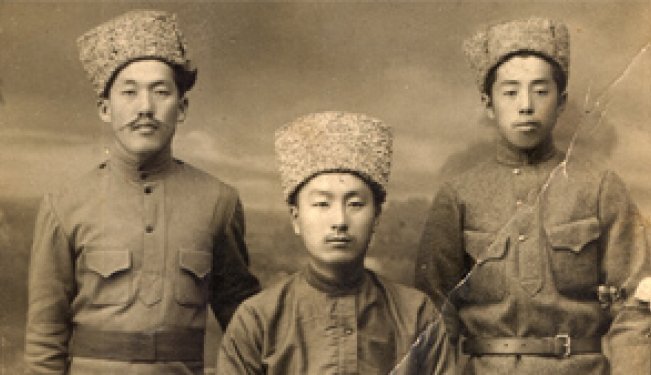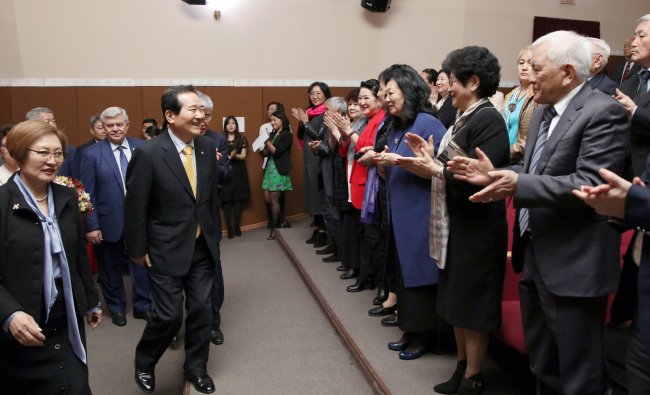
Uncovering Cultural Strains
When we think of “2nd gen” Koreans born abroad, we mostly think of K-Towns in LA and New York with sprawling barbecue restaurants and large cutouts of K-pop boy/girl groups. We often glaze over the historic populations of Korean in China, Germany, Australia, and around South America. Even more marginal in the mind’s eye of ‘Koreanness’ are the 고려사람/Koryo Saram/‘Korean' People.
These are the Koreans who emigrated to the post-Soviet territories, beginning in the late 19th century and swelling during the Japanese occupation in the early 20th. These were mostly migrants motivated to leave conflict and spread inland from Eastern Russian ports. Currently, approximately 500,000 thousand ethnic Koreans occupy the southern Russian and Ukranian regions. They refer to themselves as Koryo (Korea) people.

This is of course very different than the more recent migrations into the West including post-war emigrations to Germany to fill manual labor roles (which led to natural diffusion into other European countries) and the US/Canada which happened mostly in the last few decades of the century. Because of the nature of Western media and how South Korea has gravitated to that form of development, the lives and culture of Koryo people is much less publicized and openly understood.
But recently, I had a chance to meet a Koryo Saram in real-life, someone who works in the same office development as me. He speaks Russian and moved to the US with his family from Eurasia. Every so often I would ask about his experiences and his specific cultural relationships with ‘Koreanness’ - the differences in dialect, cuisine, and interpretation of the ‘mother country’.
I thought I would take the chance to look more into this subset of Koreans and learn about this specific genealogy of Korea’s past. I consider myself a “New Jersey Korean,” something very different than Flushing or Fort Lee or LA or Annandale or Atlanta Koreans. My 'kind' of foreign Korean generations are only a step away culturally from mainland Korean culture. It's interesting to witness and learn about how successive generations affect your sense of identity, especially when that development happened almost a century before the internet age.

The South Korean receives a warm welcome from the Koryo population. Source
I originally wanted to make this post more comprehensive about the Koryo experience and demographic, but the more I dig into it, the more I want to parse this out over a few unique elements. For example, there is a Uzbek-Korean restaurant in southern Brooklyn, Cafe Lily, that looks like a perfect opportunity to experience a bit of history first-hand. I'll try to report back on a visit soon.

It's interesting to start broadening the lens of what Koreanness is in the modern world, especially when you start mining the distinct historical reasons why whole populations of Korean adults migrated to Germany for example or set up shop individually around South American and Africa. Looks like I'm in for an indefinite number of blogposts and I'm excited to have some motivation (monetized by Steem of course) to explore these different facets.
Steem on!

It’s interesting that you bring this up. My family had a lot of Korean friends in Moscow. But most of them were already third generation Koreans and most didn’t learn Korean, because of their parents decision against it.
My mother’s friend, a third generation Korean, a geopolitics professor was complaining how South Koreans who work at the embassy in Moscow treat Russian born Koreans as second class citizens. But I guess that might be just her personal experience.
Thanks for this @fukako, I'm definitely interested in learning more. The relationship between mainland Koreans and Koryo people is even less visible than that with North Koreans. It's unfortunate...but unsurprising since Korean nationals don't know how to associate with foreign-born Koreans.
It's cool to see you delving into the relatively untold stories of the Koryo, and others, and sharing your findings! – Looking forward to the continued journey!
It's a completely helpful reminder of the true complexity of cultural heritage, and the many groups scattered around the world who have carved out their own identities, yet remain connected through a common lineage.
Stories like this help remind me of the truly unique human experience, and at the same time, our incredible unity. Can't wait to read your findings from the Uzbek-Korean restaurant!
Thanks @lovejoy and long time no "see"! Hope all is well with you =)
Yeah, I've been rambling around... just getting back to reading up on what some of my favorite Steemians are up to! =) .
Ever since travelling to Korea and researching the history, I have been curious to learn more about Koryo Saram, I really look forward to your future posts on this subject :)
I'm interested in how much of the Korean cuisine has been kept and/or adapted to suit the local product availability.
English
I see articles and photos on your post, have a historical, education, and cultural value of an area. This post is certainly very interesting to add insight in the field of history.
If you do not mind, I will resteem this post in my account. Thanks.
Date:April, 3, 2018Helloo @hansikhouse Me, @menulissejarah (writing history)
Indonesia
Saya melihat artikel dan foto pada postingan milikmu, memiliki nilai sejarah, pendidikan, dan budaya suatu daerah. Postingan ini tentunya sangat menarik untuk menambah wawasan di bidang ilmu sejarah.
Jika kamu tidak keberatan, saya akan resteem postingan ini di akun saya. Terima kasih.
Tanggal: 3 April 2018Helloo @hansikhouse Saya, @menulissejarah (#menulissejarah)